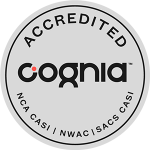When it comes to the choice to homeschool your child, the approach you choose is really going to be determined based on your child’s specific learning style and needs. For some families, a traditional homeschool curriculum will work great; however, for others, the “unschooling” approach is a better move. What’s the difference between homeschooling and “unschooling”?
Background
Homeschooling has been around since families first began passing skills down to their children. Parents have set aside parts of their day to work with their children on “reading, writing, and arithmetic” pretty much since those skills existed. With the advent of public schools, homeschooling drifted to the background, but many families became dissatisfied with the factory mindset of public schools during the 1980s, leading homeschooling once again to become a clear alternative to public schools.
Unschooling has always lived on the edge of the homeschooling community. It was first brought to light in the 1970s by the author John Holt who felt that any kind of direct instruction was negative for children’s brain development. He argued that children learn to walk, talk, eat, and think on their own by observation and on their own time, so why wouldn’t we allow them to continue to learn and grow within the world rather than in a sterile school environment that tells them what they need to learn instead of allowing them to explore their interests.
Standards Driven Curriculum vs. Student Driven Curriculum
Today, most homeschooled children are taught somewhere in between a traditional classroom curriculum and their own interests. Sure, their parents want them to be prepared for college, so they learn the core subjects of math, science, English, and social studies in order to be competent in those areas and on track with their peers.
However, often parents will supplement content to align with their child’s interests, allowing them to explore the world as well. With a lot less time spent on attendance, unruly behavior, and the general business of the public school factory, kids have time to explore whatever topics they’re interested in.
Unschooling says no to the traditional avenues of learning. This means that a student who is very interested in geology can focus on all things earth, while a student who is more interested in reading and stories can focus on crafting tales and exploring the world of words. The idea is that human beings are, by nature, curious, and it’s the educational system that kills that curiosity in unmotivated students. The thought is that by giving children freedom over their academic journey, the child’s learning will be more authentic and stick with them longer than just having them memorize information for a test.
Benefits & Drawbacks
Certainly there are both benefits and drawback to both homeschooling and unschooling. The benefit of homeschooling is that, done right, your child can graduate with a wonderful education based in the core academics they’ll need to be on par with other students when they leave for college. On top of that, they also have time to explore their interests while learning to be a curious critical thinker and skilled in independent organization and problem solving.
The trick is that sometimes homeschooling ends up looking just like a traditional public school with a requirement for 50 minutes in one subject, moving on to 50 minutes in the next subject, and so on and so forth. The flexibility that homeschooling allows families is the benefit. The drawback is the temptation to make sure your child “isn’t missing out” on traditional skills and forgetting to tailor their learning to them as individuals, letting them work at their own pace, and giving them freedom to explore their interests.
With unschooling, the clear benefit is that your child will hopefully become a curious, motivated learner. However, what happens when your child is no longer a child and is expected to learn something that they don’t enjoy quite as much? Will they have the coping skills to face that challenge? And what if your “unschooled” child doesn’t like math and chooses to avoid it all together? What is the balance between true unschooling and preparing them with the basic skills they need to survive in a modern world?
Clearly there are questions about unschooling that should be answered by any parent before they jump in head first, and perhaps some middle ground between traditional school and “unschooling” is where the beauty of homeschool education lies.
Northgate Academy
At Northgate Academy, we offer both full time enrollment and individual courses that you can use in whatever version of homeschooling you choose. Whether you’re looking for a way to give your child time to explore their interests while still learning a traditional faith-based core curriculum or you’re looking for options that will let your unschooled child study a topic of interest more deeply, you can find what you need at NGA.
If you’re interested in using our faith-based online high school program as an accredited choice for homeschool curriculum, you can check out our programs online. Still have questions? Feel free to send us a text at 763-412-4701 or call us at 800-339-7132. Our academic support team will be happy to answer your questions or help guide you to the best program for you or your child.





